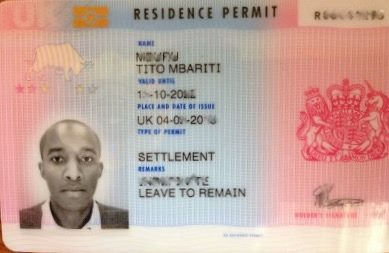Biometric residence permits (BRPs) cards have been relied on for the past 15 years as a quick and easy way to prove a Migrant’s Indetitity, and right to live and work in the UK, and replaced the previous paper status documents, which could be more easily forged and difficult to verify the authenticity of.
Since 2008 the government has moved towards using these biometrics systems, for passports, visas and driving licences. This is owing to the added security that the holder’s fingerprints and biodata information are stored in a scannable chip, which makes it easier to verify if it matches the user.
Current BRP System
The current biometric residence card system used by the Home Office means that when a migrant travels abroad or encounters an immigration officer, all they need to do is present their card, which can be scanned in seconds and reveals all the identity information related to that person. The biometric card normally status:

- name, date and place of birth
- fingerprints and a photo of the face
- immigration status and any conditions of your stay
- whether a person can access public funds, for example, benefits and health services
It is also easier for employers to check the biometric residence card, which usually clearly states the validity of the person’s visa and their right to work in the UK. However, this system is being phased out, and there are some concerns around what will happen when it comes to an end.
New system
The government is currently phasing out BRP cards, with current ones expiring on the 31st of December 2024. The new system will be moving to an online database similar to the one used for EU citizens under the Settlement Scheme. Instead of the physical card, there will be reliance on a shared code that is generated by the migrant via the government website and given to the employer, who uses that code on the government website and checks the migrant’s right-to-work details. This means there will no longer be a reliance on a physical card after the deadline.

Concerns
There are concerns about how well this system will work for non-EU nationals, as although the scheme has been mostly successful with EU nationals (although not completely without issue), not all passports are viewed equally when travelling.
For example, if a French national boards a plane from Amsterdam to travel back to the UK, where they have Settled Status, they would only need to show their EU passport and the immigration officer at the departure airport would not be too worried about whether they are coming to stay or visit, as they have an automatic right to visit the UK and therefore wouldn’t necessarily need a visa.
In the same scenario, a Nigerian national coming to visit would need to have been granted a visa before entering the UK, and one would assume that airline staff may be rather hesitant to accept a printout of a decision letter as evidence that they had the right to enter the UK. Accessing a government website to check the validity of a shared code could be time consuming and present further issues if not implemented thoroughly. The only way to generate the shared code is also by using the reference number, which is not currently on the decision letter.
We are yet to be told how the system will be implemented and whether the concerns will be addressed, but hopefully, the government will ensure that any teething problems are ironed out as soon as possible. The whole Windrush debacle has eroded some of the trust in the UK immigration system, as the government stopped giving out physical status documents to migrants but then erased databases and left many people with no proof of their legal status here. Hopefully, those lessons have been learnt, and the changeover will not result in a similar scenario in the future.
Meanwhile, those who have received a visa recently should not be concerned that their BRP cards expire before their expiry date. The decision letter, which should have been emailed to the applicant or their representative, will contain the correct expiry date. If you don’t have the decision letter, then you or your representative can contact the Home Office and ask for a copy.
You may contact us by filling in our Quick Enquiry form any time you need professional support or have any questions. Alternatively, you can call us during office hours on 07544669131 / 0116 3800 744
Cross Border Legal Ltd is a UK Solicitor law firm regulated by under the Solicitor Regulations Authority. It is Headed by Mr Tito Mbariti, a UK Immigration and Human Rights Solicitor practising lawyer and member of the Law Society of England and Wales.

